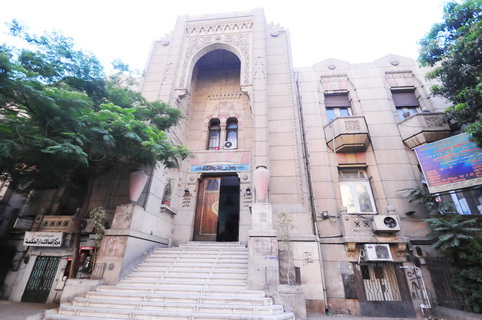With the outbreak and progression of the novel coronavirus (COVID-19) pandemic, we have plunged into a new era, one with its own unique challenges.
First among these are how to identify such an unprecedented shock, how to measure the extent to which its effects can spill over between countries or indeed be contained, and how to quantify the uncertainty surrounding forecasts.
We are after all in completely unchartered territory. The pandemic has exposed and exacerbated vulnerabilities within and among countries, putting inequalities of all kinds under the spotlight.
This virus has reaffirmed that the systems on which we depend, are not only increasingly interdependent, but also growingly vulnerable. This new reality holds true around the world.
For the Mediterranean region, however, where conditions of fragility and risks of exposure are more concentrated, addressing this new norm must be of utmost importance. The region’s pre-existing fragilities, most notably the high levels of socio-economic inequality and the pressing climate change emergency, are set to worsen as a result of the pandemic.
Indeed, the Mediterranean remains one of the most economically fragmented regions in the world, with trade flows sharply asymmetric. A total of 9% of all Euro-Mediterranean trade takes place between the EU and its Southern and Eastern Union for the Mediterranean (UfM) neighbours, whereas South-South trade accounts for just 1%.
Addressing the trade imbalance and relocating some of the supply chains closer to home hold the keys not only to economic security and stability. It also is key to a more structured and sustainable regional integration in the Euro-Mediterranean region, which lies at the very heart of the UfM mandate.
As data confirms once again, the impacts of crises are never gender neutral, and COVID-19 is no exception with 47 million women and girls estimated to be pushed into poverty by 2021 due to the virus.
Women’s empowerment is firmly on the region’s agenda and the recently launched intergovernmental monitoring mechanism in the Mediterranean aims not only to gauge efforts to promote women’s rights. It also seeks to empower policymakers to tackle areas where progress is too slow.
What gives hope to the people of our region is the dynamism and potential of our youth. No less than two-thirds of the population is under 35-years-old in the Middle East and North Africa (MENA) region and unleashing this power would provide an enviable wealth of untapped human capital.
Mitigating and even resolving the region’s damaging unemployment rates and skills gap is possible. More than 100,000 young people, together with 800 small- and medium-sized enterprises (SMEs) are already benefitting from the Mediterranean Initiative for Jobs (Med4Jobs). At the same time, the creation of Euro-Mediterranean Universities is helping to forge a more regional and open vision among younger generations.
Yet, despite the deep socio-economic crisis engendered by the pandemic, the world remained strong in its commitment to tackle the climate emergency. It is one of the great challenges of 2021, and the question of the environment’s future now weighs heavily on every decision in our region.
Indeed, as the rise of temperature is progressing 20% faster than the global average, the health and wealth threats represented by climate change are especially acute in the Mediterranean Basin.
By acting in unison, substantial progress has already been made in this area of work. The UfM has supported the creation of a network of over 600 Mediterranean Experts on Climate Change (MedECC), along with the development of the first region-wide study on the impact of climate and environmental change in the Mediterranean. This is equipping policymakers to make science-based decisions whilst helping to improve the North-South data gap.
One message, beyond immediate scientific findings, emerges from the report: no person, organisation or area, be it in the South or North of the Mediterranean can face the magnitude of the challenges on their own.
The upcoming Ministerial Meeting on Environment and Climate Change to be hosted by Egypt mid-2021, is crucial and a step in the right direction. It aims to ensure further coordination of efforts to shift towards a greener, carbon-neutral, socially inclusive economy.
It also aims to prevent and reduce pollution as well as to protect and restore natural resources in the Mediterranean region through an integrated approach that addresses the ecosystem as a whole. We must turn climate change into an opportunity for peaceful, fair and sustainable co-development. Only then can we hope to tackle the main issues linked with the ongoing changes in a robust and resolute way.
COVID-19 is a stark reminder of the need for tangible cooperation across borders, sectors and generations. Hundreds of positive initiatives already serve as inspiring examples of this commitment in action.
Ranging from large-scale international projects to local collaborative initiatives, a consolidated network of cooperation has gradually developed and directly impacted the lives of millions of citizens in the Mediterranean region.
While the scale of the challenges ahead is enormous, I am confident that our collective response has the power to determine not only how well we handle these pressing challenges, but also how fast the region recovers.
Thanks to this resolve and the immense potential of the region provided by its human capital and the promise of its youth, we can act assured that our destiny remains in our hands. Our story must therefore continue to be one of hope as we build a future that leaves nothing to chance, one we can pass proudly to the generations to come.
Nasser Kamel, Secretary General of the Union for the Mediterranean


